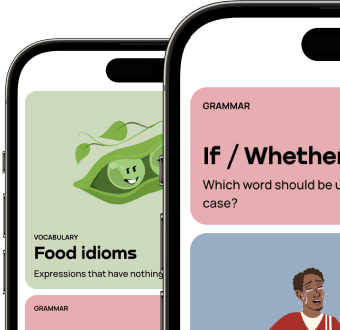L’impératif – How to form and when to use French imperative form
Contents
Key takeaways
- The imperative (l’impératif) is a verb form used to give commands, instructions, advice, or invitations.
- It only has three persons: tu, nous, vous.
- Reflexive and pronominal verbs have special forms in the imperative.
- Negatives wrap ne… pas around the verb.
- Common in everyday life: Viens ! Mange ! Attendez !
What Is the Imperative in French?
The imperative is the mood used to express orders, advice, suggestions, or requests. In English, it corresponds to “Do this!” or “Let’s go!”
Examples:
- Ferme la porte ! → Close the door!
- Allons-y ! → Let’s go!
- Attendez ici ! → Wait here!
According to the guide on Master The French Imperative, it’s one of the most practical moods since it’s used daily in both formal and informal situations.
How to Form the Imperative
The imperative uses the present tense forms of verbs, but without the subject pronoun.
Regular Verbs
-ER verbs: drop the final -s in the tu form.
- Parler → (tu) parle !, (nous) parlons !, (vous) parlez !
-IR verbs: same as present tense.
- Finir → (tu) finis !, (nous) finissons !, (vous) finissez !
-RE verbs: same as present tense.
- Attendre → (tu) attends !, (nous) attendons !, (vous) attendez !
Common Irregulars
- Être → sois, soyons, soyez
- Avoir → aie, ayons, ayez
- Savoir → sache, sachons, sachez
- Vouloir → veuille, veuillons, veuillez
Negative Imperatives
To make a command negative, place ne… pas around the verb.
- Ne parle pas ! → Don’t speak!
- Ne sortez pas ! → Don’t go out!
With reflexive verbs, the pronoun stays before the verb in the negative:
- Ne te lève pas ! → Don’t get up!
Affirmative Imperative with Pronouns
In positive commands, object pronouns follow the verb with a hyphen.
- Donne-le-moi ! → Give it to me!
- Habille-toi ! → Get dressed!
Imperative with Reflexive Verbs
Affirmative: pronoun comes after, joined with a hyphen.
- Lève-toi ! → Get up!
- Asseyons-nous ! → Let’s sit down!
Negative: pronoun stays in front.
- Ne te lève pas ! → Don’t get up!
- Ne nous dépêchons pas ! → Let’s not hurry!
1
Imperative in Everyday French
The imperative is used constantly in French conversations:
- Giving orders: Écoute-moi ! → Listen to me!
- Giving advice: Sois patient ! → Be patient!
- Instructions: Écrivez votre nom ici. → Write your name here.
- Invitations: Allons au cinéma ! → Let’s go to the cinema!
French Imperative vs English
| English | French |
| Sit down! | Assieds-toi ! |
| Don’t move! | Ne bouge pas ! |
| Let’s eat! | Mangeons ! |
| Please wait. | Veuillez patienter. |
Exercises: Practice the Imperative
1. Conjugate in the imperative
- parler → (tu) ________, (nous) ________, (vous) ________
- finir → (tu) ________, (nous) ________, (vous) ________
2. Translate into French
- Don’t speak!
- Let’s go!
- Be quiet!
3. Rewrite with pronouns
- Donne le livre à moi ! → ________
- Habille toi ! → ________
Answers
- parle, parlons, parlez | finis, finissons, finissez
- Ne parle pas ! | Allons-y ! | Tais-toi !
- Donne-le-moi ! | Habille-toi !
Tips for Mastering the Imperative
- Always remember to drop the -s in the tu form of -er verbs.
- Use the imperative for both formal instructions (Veuillez patienter) and casual speech (Viens !).
- Practice reflexive verbs in both affirmative and negative forms.
- Notice how French uses polite imperatives in service settings: Veuillez entrer, veuillez patienter.
For broader grammar, see past, present, and future tenses in French. And for planning your journey, explore how long does French fluency take.
Summary
The imperative (l’impératif) is a practical French form used to give commands, advice, or invitations. It has only three persons (tu, nous, vous), uses special rules for reflexive verbs, and can appear in both positive and negative forms.
By studying resources like Master The French Imperative and Quick tips, you’ll quickly understand how to use it naturally in daily life. With practice, you’ll confidently say Ferme la porte !, Allons-y !, Veuillez patienter while you learn French with Promova app.

Comments